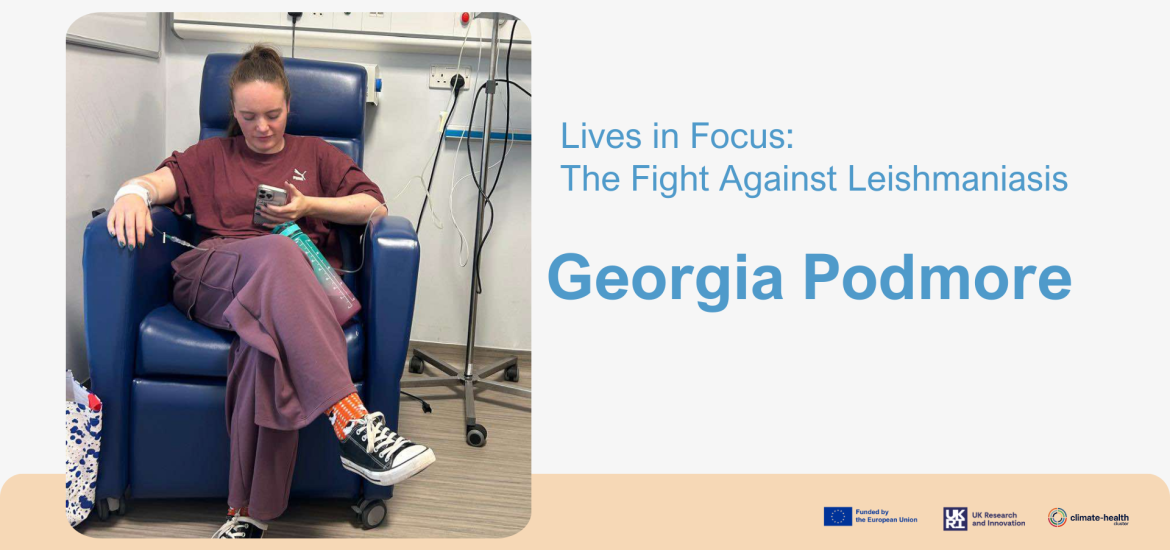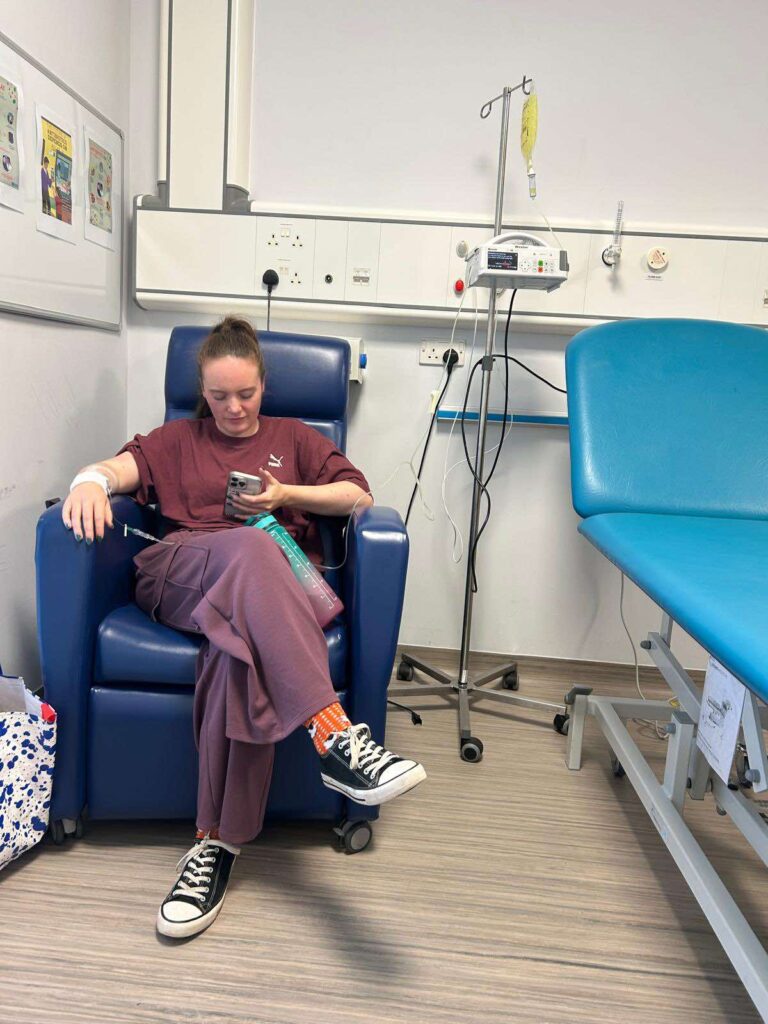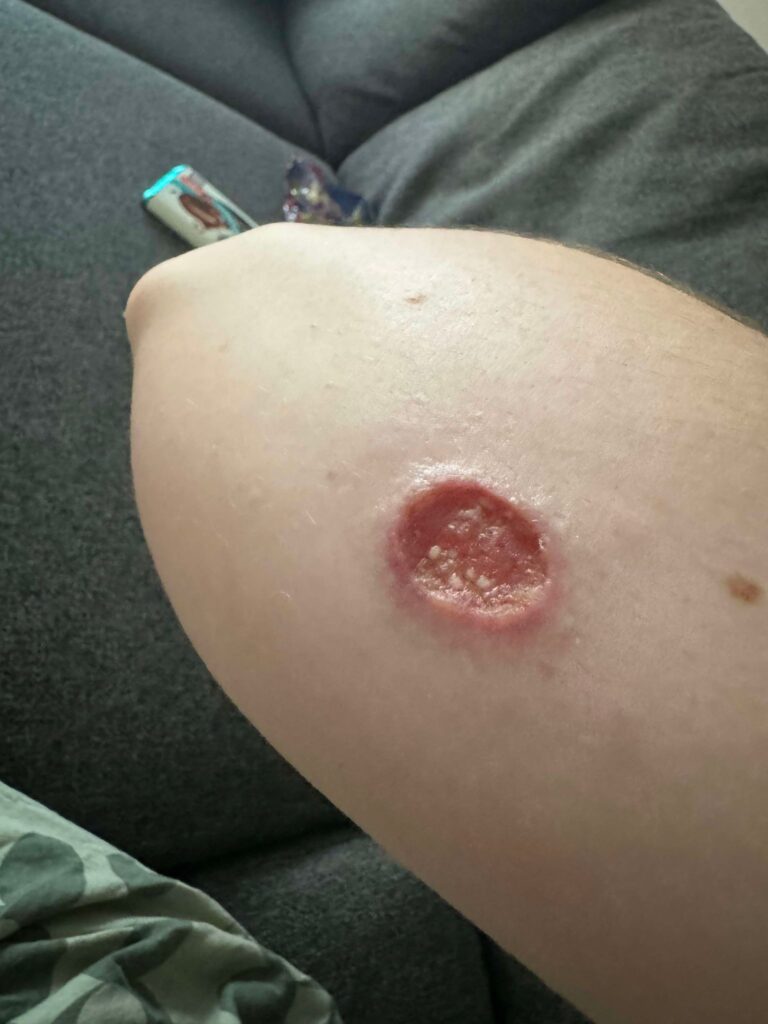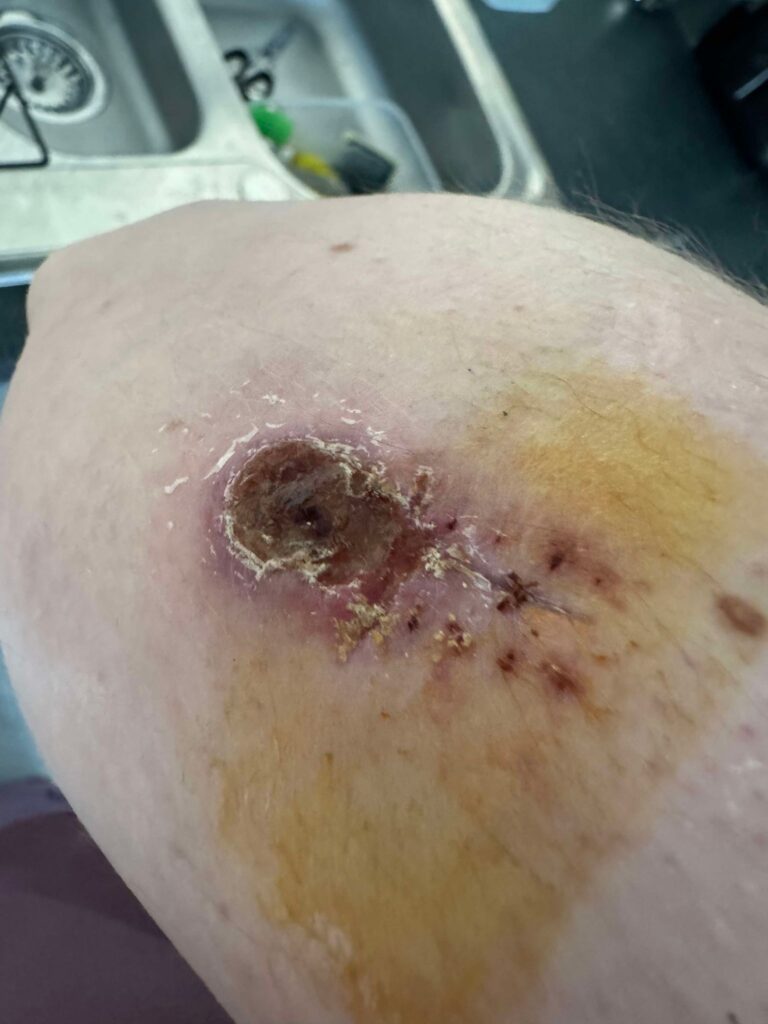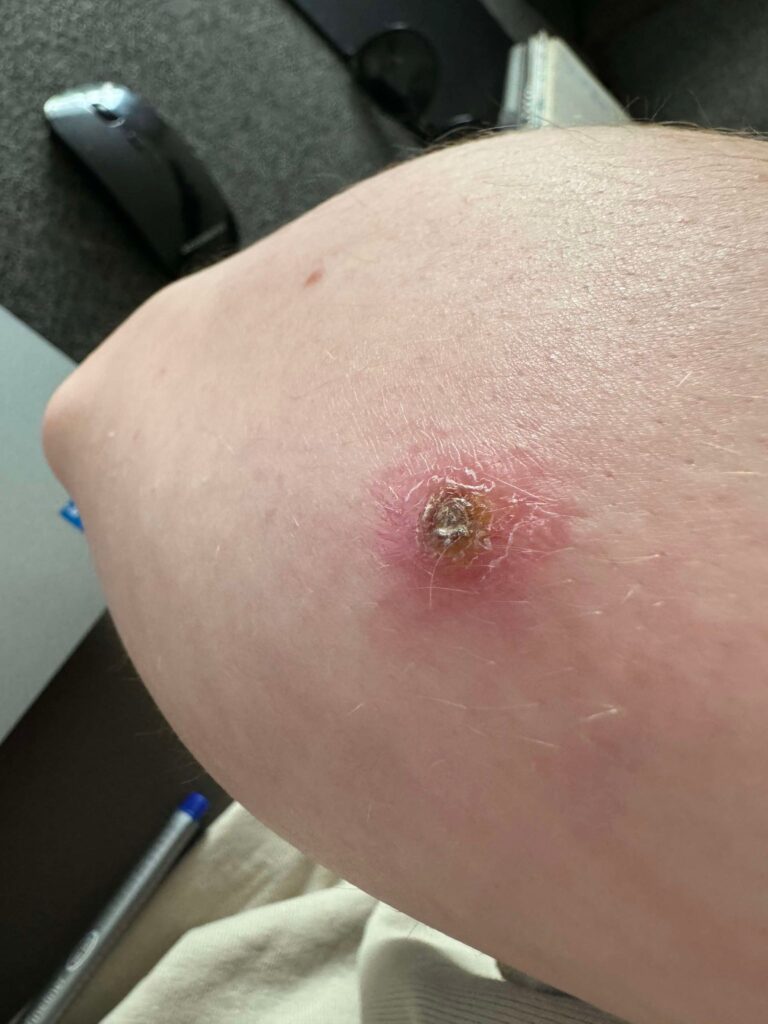While volunteering on a wildlife surveying project, Georgia suffered insect bites on her legs. At the time, she did not realise that these were from sand flies. The bites started as small red marks but progressively worsened. They grew in size, scabbed over, and eventually developed into crater-like ulcers. Despite seeking medical advice, it took four months for her to receive a proper diagnosis.
Frustratingly, it was Georgia’s own research that led to her diagnosis. Despite repeated visits to healthcare professionals, where she highlighted her recent travels to Costa Rica, her concerns were overlooked. Doctors prescribed antibiotics and steroids, yet the condition showed no improvement. It was only after Georgia insisted on a biopsy that the diagnosis of leishmaniasis was confirmed.
Although she initially felt relief at having an answer, the realisation that she had the Braziliensis variant—requiring full-body treatment—brought fear and uncertainty. She was finally referred to a Tropical Disease Hospital, where she could speak to specialists who understood her condition. However, by this point, the delay in diagnosis had already caused significant distress.
Georgia describes her experience as life-changing in a negative way, particularly regarding her trust in healthcare providers. While acknowledging that doctors cannot be expected to know every disease, she felt that her case was never fully investigated despite repeatedly mentioning her travel history. She believes that there needs to be greater awareness of tropical diseases among medical professionals and a better system for referrals to tropical disease specialists.
To help others avoid similar struggles, Georgia is in the process of setting up a meeting with her local Patient Liaison Service. She hopes to use her case as a study to spread awareness and advocate for improved diagnostic processes
The challenges have not ended with the diagnosis. Georgia had a reaction to her first IV treatment, and the alternative oral medication is unlicensed in the UK. She remains in limbo, waiting for the hospital to receive the necessary medication. The uncertainty is distressing, as she constantly worries that the disease may spread to other parts of her body, such as her throat and stomach.
Georgia’s experience has taught her the importance of self-advocacy. She urges others to trust their instincts and push for answers when they feel something is wrong. She also encourages people to share their stories, as hearing about others who have gone through similar experiences can be a great source of comfort. For Georgia, finding a YouTube video of someone with leishmaniasis was a moment of reassurance and understanding.
Raising Awareness
Her journey highlights the need for greater awareness of tropical diseases in UK healthcare. She hopes that by sharing her experience, changes will be made to ensure that travellers returning with unexplained symptoms are given appropriate consideration and timely referrals.
For now, Georgia continues to battle the effects of leishmaniasis, facing uncertainty with courage and determination. Her story is a reminder of the importance of awareness, advocacy, and the need for improved healthcare responses to tropical diseases.
The CLIMOS project is an EU-funded project (No 101057690) that aims to assist the mitigation of climate change-induced emergence, transmission and spread of vector-borne and zoonotic pathogens.
To this end, we want to share human-centered stories focused on the struggles with sand fly-borne diseases, and the injustice that comes with a Leishmaniasis diagnosis for many across the globe including expensive and global shortages of vaccinations, dangerous and even deadly chemotherapy treatments and the stigmatisation of people who developed significant ulcers and consequently, lifelong scarring.
The campaign in collaboration with the Leishmaniasis Advocacy Network (LAN) will promote awareness of daily practices to help prevent sand fly exposure and emphasize the importance of preparedness and accurate diagnosis for health authorities. If you want to participate kindly do so by answering this survey
The stories will be published according to their order of submission. You will be asked your consent preferences around the use of your personal details in the campaign, but don’t worry, we can pseudonymise your responses. Pseudonymisation means all your personal information (name, location, etc) will be replaced by the researcher with fictionalised names, prior to publication, in order to protect your privacy. Nobody but the researchers will know your real identity.
